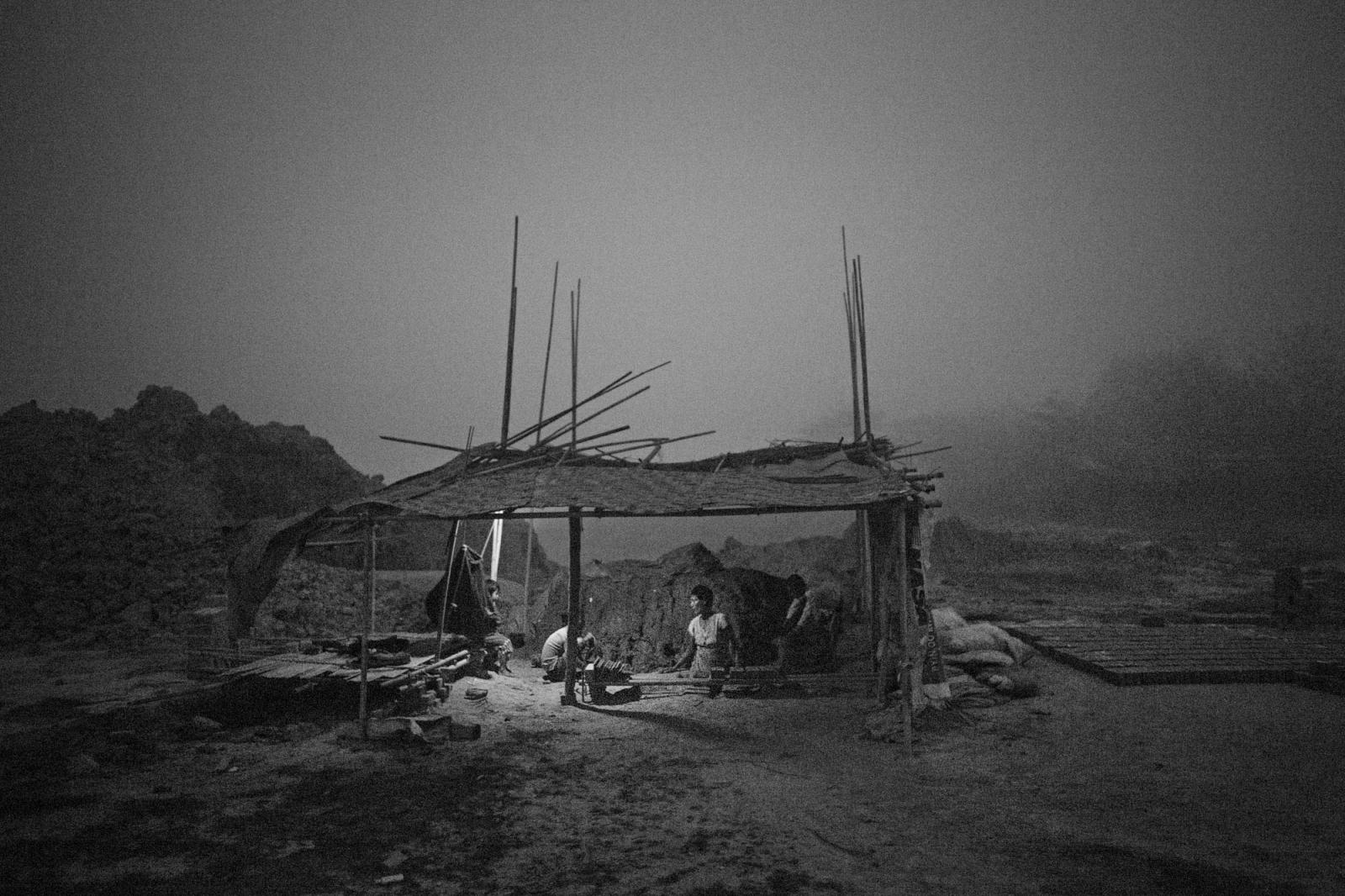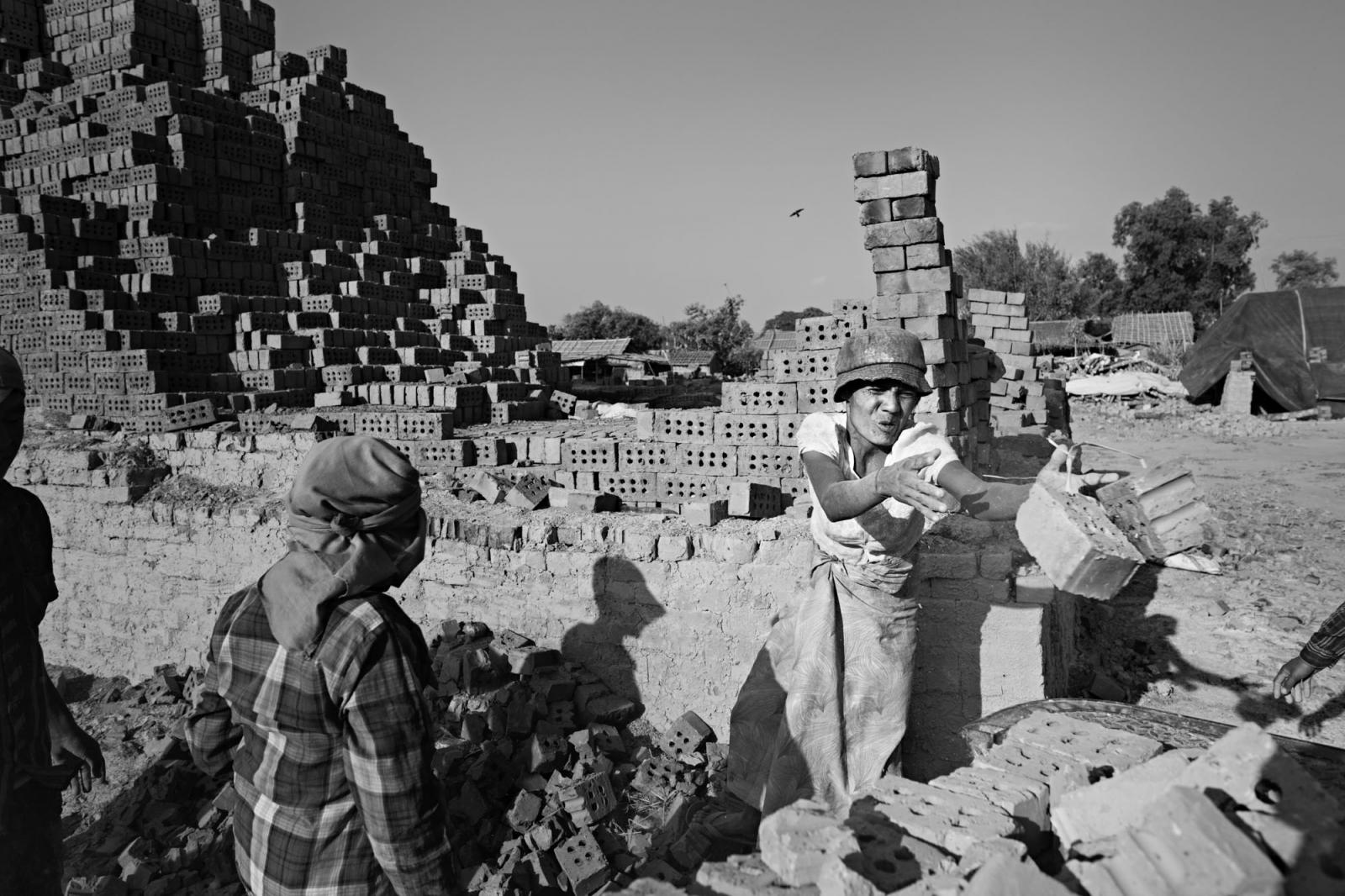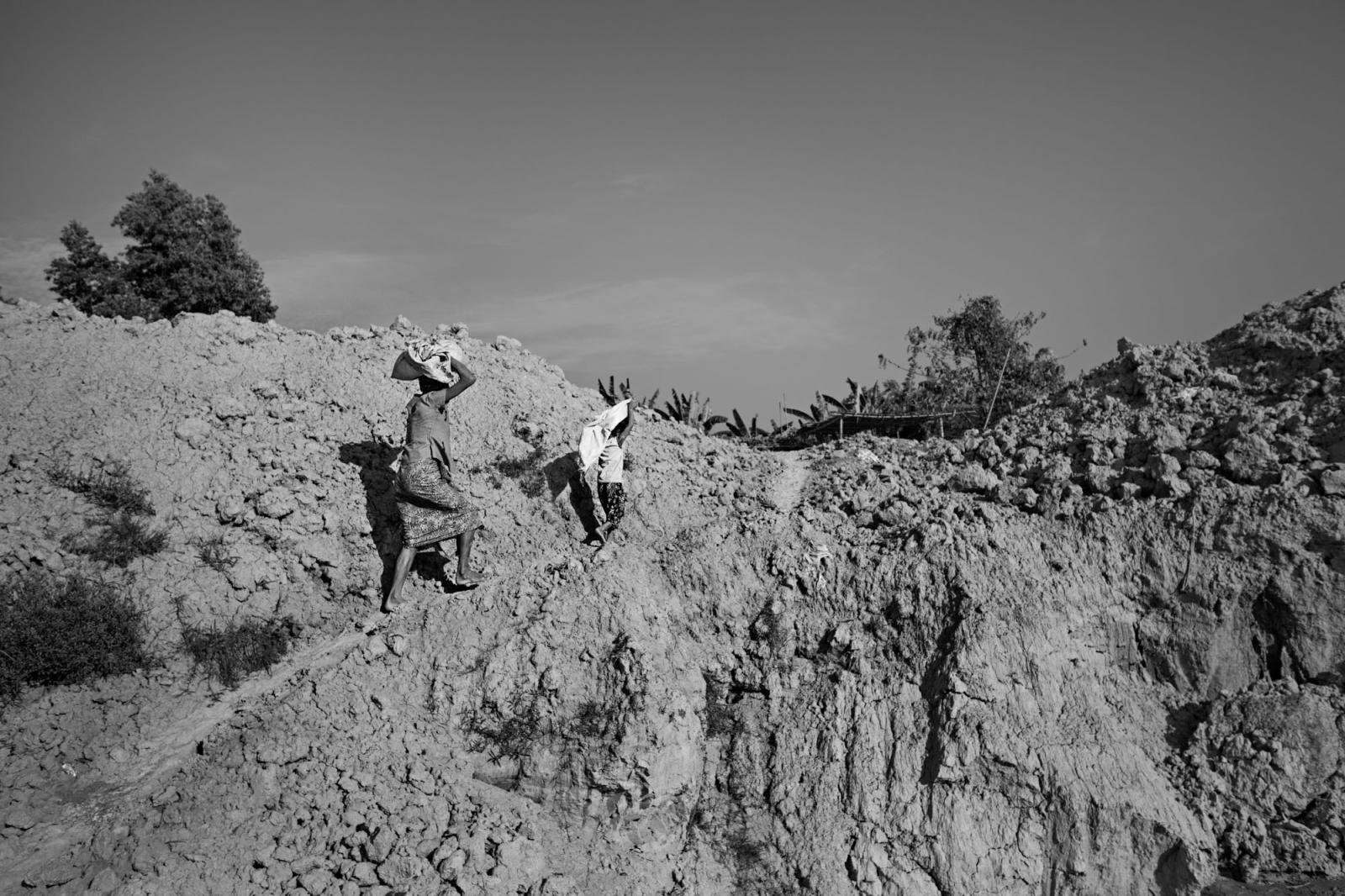Public Project
Built On Their Backs
Around the turn of the century, Naing Lin and Than Nwe traveled to the brick factory on the promise of work. They came from the rural town of Hinthada on the Irrawaddy River, in the Ayeyarwady Region. Their stay was to be short but the cost of living forced them into debt. Faced with the prospect of being unable to return, they eventually started a family. Their first son, Naing Lin Oo, named after his father, turned fourteen in 2016. At that time, Than Ko was ten, his sister Saung Ning Wai a few years younger. Sandar Lin was only two years old. Her name, which means "shining moon" was bestowed upon her by her father who adored her as a lucky child.
Prior to 2016, life remained more or less unchanged for all of them. Though their home is a mere one hour drive from the drastic changes of downtown Yangon, and its turbulent history, their lives did not reflect this. Naing Lin and Than Nwe had heard of the infamous 1988 student uprisings, but had no recollection of the bloody 2007 Saffron Revolution. In Myanmar's historic 2015 election, called the first free and fair election in the country's history, they were offered cooking oil and rice for their vote. When it was discovered that they were unregistered, however, no effort was made to help them do so. Perhaps the most monumental moment in the history of their country passed them by, their voices lost in the chaos of transition.
In mid-March 2016, Naing Lin collapsed on a particularly hot day and shortly after he passed away. He was buried in an unmarked grave, a few minutes' walk from where he had spent the past fifteen years working. There was little time for grief. Than Nwe and Naing Lin Oo returned to work almost immediately, short a husband and a father. Naing Lin died helping to build a future for a country that did very little for him and his family. He, and eventually his wife and children, will all become part of the earth from which the cheap yet important bricks are made. Naing Lin, his family, and others like them are required by their country, but are not a part of its future.
20,812






















